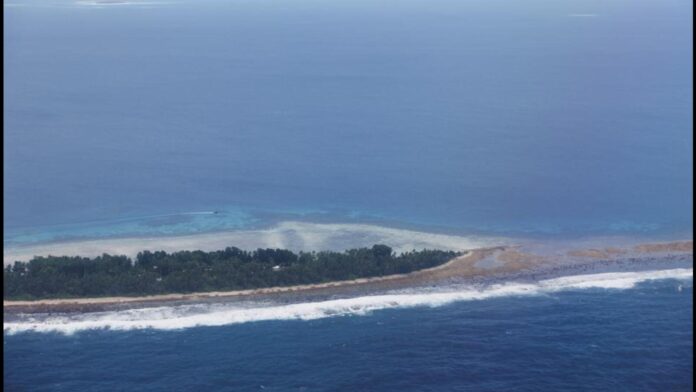New Delhi:
Decisive climate action taken now could spare future generations around 0.6 metres of sea-level rise that would otherwise reshape coastlines for centuries to come, new research has found, underscoring the urgent need for emissions mitigation despite the irreversible nature of rising seas.
The study, published in Nature Climate Change, reveals that under current policies, greenhouse gas emissions from 2020 to 2050 alone would commit the world to an additional 0.3 metres of sea-level rise by 2300 — beyond what historical emissions until 2020 have already locked in.
If emissions continue on their current trajectory until 2090, the world would face a global rise of about 0.8 metres. However, roughly 0.6 metres of this increase could still be avoided if immediate emissions reductions consistent with the Paris Agreement’s 1.5°C pathway are implemented, according to the International Institute for Applied Systems Analysis (IIASA).
“The difference between decisive climate action today and continued high emissions is not just measured in degrees of warming but also in metres of sea-level rise that will reshape coasts worldwide for centuries,” said Alexander Nauels, lead author and senior research scholar in the Integrated Climate Impacts Research Group of the IIASA Energy, Climate, and Environment Programme.
The research shows that historical emissions have already committed the world to substantial sea-level rise by 2300. “Our results indicate that cumulative greenhouse gas emissions until 2020 have locked in around 30cm of sea level rise in the year 2300, relative to the global mean sea level during the 1995-2014 reference period,” Nauels said.
“Already this amount of historically locked-in sea-level rise has big implications for adaptation planning – even if it may not seem much at first sight. Just imagine large-scale coastal protection measures like dikes or flood barriers that have to be raised by this amount to maintain today’s protection levels,” he added, warning that many regions — like low-lying atolls in the Pacific — do not have such options.
“And we must not forget that some of the world’s most densely populated areas and mega-cities are located in coastal areas that will also face these increasing threats from rising seas. So there are direct implications for societal health and mobility, too,” Nauels said.
Nauels explained that traditional sea-level rise research typically delivers projections only to 2100, which fails to capture the full scope of today’s emission impacts. “We have to explore these impacts on timescales beyond 2100 because oceans and ice sheets keep responding for centuries,” he said. “Our study shows clearly that mitigation decisions in the next few decades will have multi-century consequences for coastlines worldwide.”
Sea levels respond to climate change on timescales from decades to millennia, making today’s emissions decisions critical for generations far into the future.
The study also highlights significant regional variations, with vulnerable Pacific islands expected to experience sea-level rise exceeding the global average. “These regional and local changes have to be understood and resolved in much greater detail to better inform decision makers,” noted co-author Matthew Palmer from the UK Met Office. “Our work highlights the long-lasting legacy of today’s emissions and that adaptation planning must be considered centuries ahead.”
M Rajeevan, former secretary of India’s ministry of earth sciences, emphasised the study’s central message: “Sea level rise is irreversible on human time scales and among the most severe consequences of climate change. This study shows that near-term mitigation could spare future generations around 0.6 metres of sea-level rise…making today’s decisions critical not only for limiting warming but also for coastal impacts.”
sea levels,Paris agreement,Alexander Nauels,climate change,M Rajeevan,climate action
#Reining #emission #cut #0.6m #future #sealevel #rise #Study

